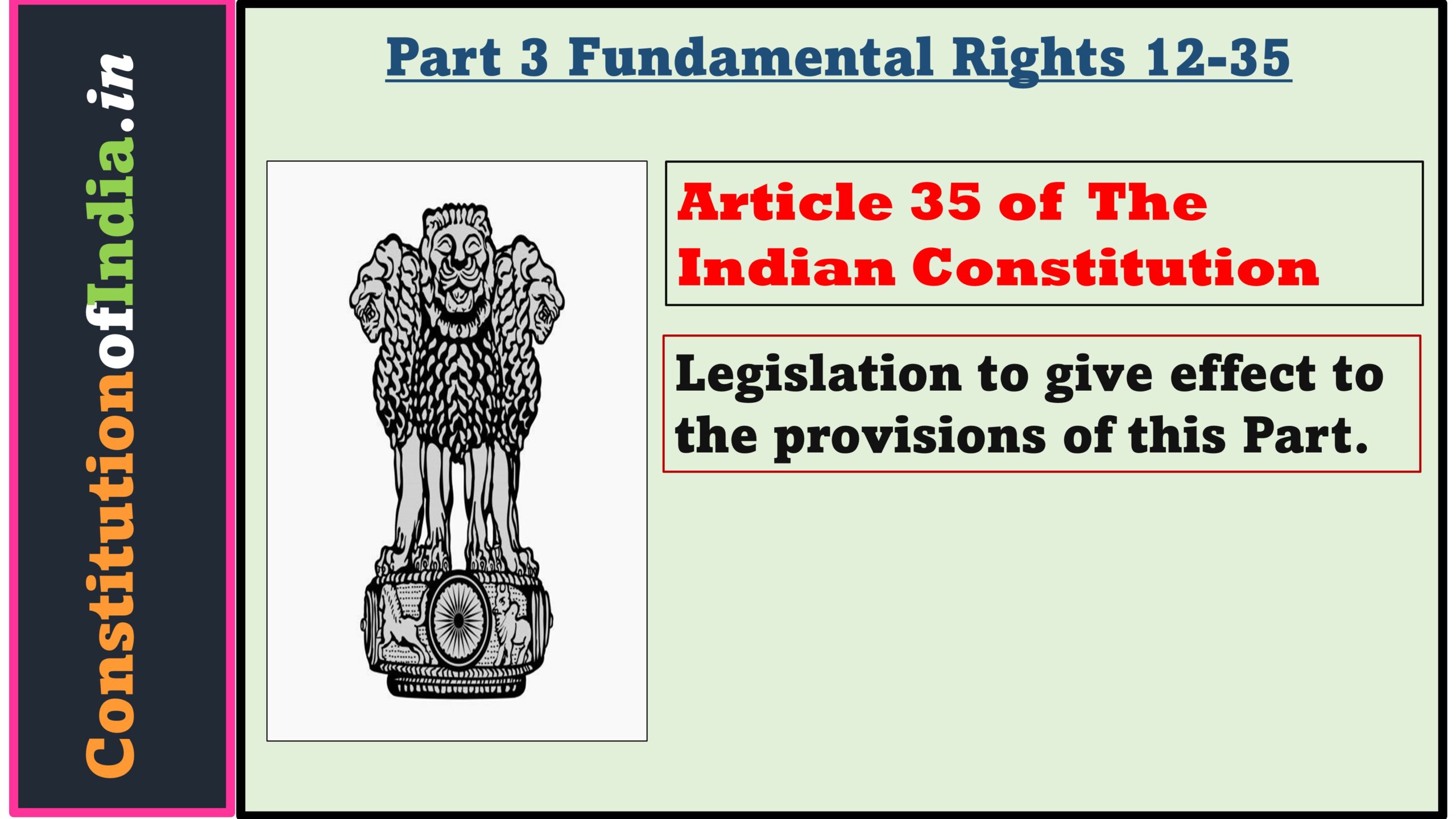Article 35 of Indian Constitution: Legislation to give effect to the provisions of this Part.

Article 35 Legislation to give effect to the provisions of this Part – Constitution of India
Notwithstanding anything in this Constitution,—
Legislation to give effect to the provisions of this Part.— Notwithstanding anything in this Constitution,—
(a) Parliament shall have, and the Legislature of a State shall not have, power to make laws—
(i) with respect to any of the matters which under clause (3) of article 16, clause (3) of article 32, article 33 and article 34 may be provided for by law made by Parliament; and
(ii) for prescribing punishment for those acts which are declared to be offences under this Part,
and Parliament shall, as soon as may be after the commencement of this Constitution, make laws for prescribing punishment for the acts referred to in sub-clause (ii);
(b) any law in force immediately before the commencement of this Constitution in the territory of India with respect to any of the matters referred to in sub-clause (i) of clause (a) or providing for punishment for any act referred to in sub-clause (ii) of that clause shall, subject to the terms thereof and to any adaptations and modifications that may be made therein under article 372, continue in force until altered or repealed or amended by Parliament.
Explanation.—In this article, the expression “law in force” has the same meaning as in article 372.
Summary of Article 35 of Indian Constitution
This provision states that Parliament has the power to make laws regarding certain matters specified in article 16(3), article 32(3), article 33, and article 34. Additionally, Parliament can establish punishments for offenses mentioned in this section. These laws will replace any existing laws on these matters or punishments in force at the time of the Constitution’s commencement, unless Parliament decides to alter, repeal, or amend them. The term “law in force” refers to the same meaning as in article 372.